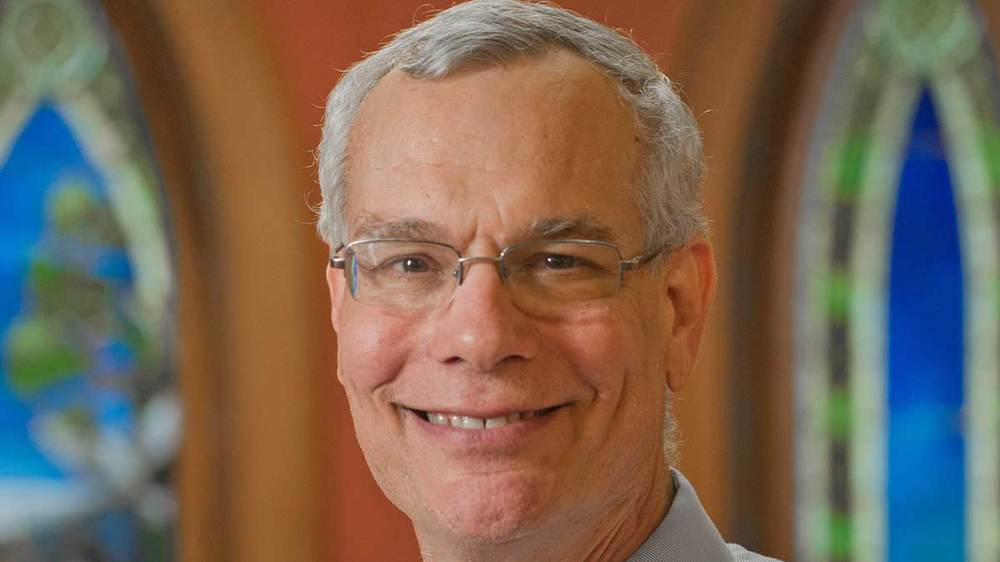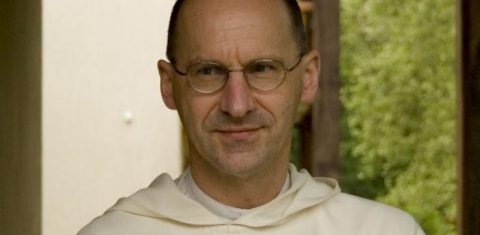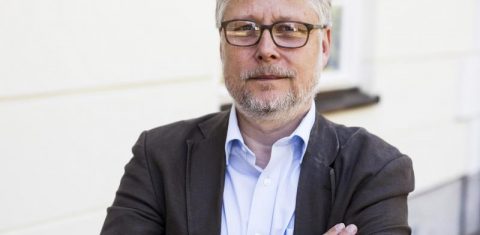This lecture, from the series of John Paul II lectures, was announced by way of introduction by Dominic Holtz OP, Vice Dean of the Department of Philosophy at Angelicum who thanked donors of the institute and mentioned future events to be held. He gave the floor to Dariusz Karłowicz who presented our guest to his audience and introduced the issues to be debated.
Opening the debate with contemporary effects felt from the Second Vatican Council, Prof Cavadini began with the crisis of modernity, in light of the Second Vatican Council constitution Gaudium et Spes. He drew our attention to how this diagnoses our human condition in today’s world, and explained the word choice used in describing the effects and causes of the crisis. Gaudium et Spes calls upon us to realise what the ‘signs of our times’ are and emphasises how modernity is ‘a new era in the workings of our world’. One of the main signs is one which sheds light on what activates and moves the mind while also explaining the anxiety and worry that come with it, emphasised Prof Cavadini.
The answers to this crisis, above all a crisis of humanity and human dignity, are provided by the church with its inspired and accumulated wisdom collected over the millennia. Above all is the responsibility for upholding the teachings on human dignity entrusted to the church, centred on man being made in the image and likeness of God as well as the incarnation of Christ, and making this known to the world in taking on the challenges that the church faces in the contemporary world. This mission is expressly stated and undertaken in the Pastoral Constitution Gaudium et Spes whose subheading reads ‘The Church in the Modern World’.
Progress does indeed allow a person to achieve great things, such as partaking in the improvement in quality of life or the lessening of suffering, yet without a higher moral directive this may all turn against somebody.
In order to face this challenge head on, the church needs to seek a diagnosis and an understanding of these problems which lead to the crisis of modernity mentioned at the start of the lecture. Amongst other methodologies, he identifies them in the growing disharmony between technological and educational advancements and the weakening of our moral senses and the loss of not only Christian values but, as John Paul II underlines, human values in general, this being understood naturally or by human norms of understanding regardless of the challenges that come with them. Progress does indeed allow a person to achieve great things, such as partaking in the improvement in quality of life or the lessening of suffering, yet without a higher moral directive this may all turn against somebody. It may end up leading a person to bondage rather than to freedom, which not only historical lessons show us but also contemporary. It can therefore be observed how in gaining from these fruits of progress, it’s not all fairly distributed and thus growing inequalities account for one of the main causes of this great crisis which faces the dignity of human beings.
There is no doubt that the claim for progress does not disqualify nor does it supersede age old questions of human nature and fate, nor good and evil, nor the nature of our soul or death. The answers which the church provides need therefore to be constantly repeated. The fundamental problem seems to be articulating them well in language of our contemporary culture. Leading a dialogue in the spirit of the Gospels paradoxically doesn’t happen to be anything other than one flowing directly from the human heart. In the spirit and mind of the Second Vatican Council, this is the answer to the crisis of modernity as to the human status categorised in a way to chime with every human heart regardless of its faith, concluded Prof Cavadini.
There is no doubt that the claim for progress does not disqualify nor does it supersede age old questions of human nature and fate, nor good and evil, nor the nature of our soul or death.
During his pontificate John Paul II developed upon the ideas proposed by the Second Vatican Council and sought furthermore to communicate this in dialogue with the contemporary world in a way which would preclude any relativism. Prof Cavadini has reconstructed this model of dialogue in respect to the encyclical Evangelium Vitae. According to him, it wonderfully portrays the dynamic in relations of the age long teachings of the church with the contemporary world. Adding to the issue of abortion John Paul II relates to experiences that are common to all people with the hope of a universal gospel mission and catholic anthropology becoming accessible and clearly perceivable to both the faithful and those not of faith. Upholding gratefulness and love for human life and correlating this with philosophies which prioritise ‘simply being’ instead of acquiring and looking at a person as an object for profit, can even happen without taking into account the revelations of Christianity, even if this is the everlasting source of joy and hope for the faithful, argued Prof Cavadini.
Giving possibility for such a scope here for dialogue, and presenting an opportunity for expressing Christian hope in contemporary human language though not necessarily having to conduct it within an explicitly Christian confessional framework, is a huge achievement by John Paul II according to Prof Cavadini. This effort, which the Second Vatican Council encourages us all towards, is a duty of the church not due to it being the path to overcoming the problems posed by modernism but by relying simply on the Gospel – the good news – which the church was entrusted and preaches to the entire world. In this framework thanks to John Paul II who enabled it to us for peaceful dialogue, we don’t run the risk of being misrepresented or misconstrued by the current spirit of our times, and conversely it can blossom in the hearts of the people and help us all overcome the problems that result from suffering which comes with the crisis of modernity. Contemporary culture of pluralism in our secular world can indeed be receptive to the sensibilities presented here, which are very much enriched by the light of Christian revelations bringing more admiration and likewise gratefulness even if in itself it won’t be enough to hold up the issue. The ‘yeast’ or ‘leaven’ of the church is needed to adequately diagnose the problems and issues bringing clarity to the debate on the values presented here, in order to activate our moral conscience, explained Prof. Cavadini.
In finishing up, Prof Cavadini called upon the heroic testament of Christian martyrs, likewise who John Paul II called upon in his encyclical Veritatis Splendor. It happens to cast new light on what we regard as human law. In line with John Paul II, Prof Cavadini observes how the martyrdom of Christ and his apostles casts a different light on those who gave their lives for universal values, not being Christians. Indeed the Pope highlighted that Christians don’t hold the patent on moral good. John Paul II comes across here as highly adept in developing his interpretation to the dialogue put forward by the Second Vatican Council while remaining faithful to it, and its roots stemming from Lumen Genitum (the light of the nations) – that being Christ who enlightens the church as a newborn for humanity and through this for the whole world, summarised Prof Cavadini in closing his commentary.
Translation: Tomasz Sosnowski
Full text of the lecture can be found here.




